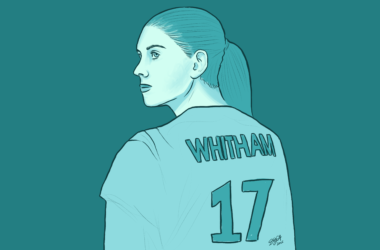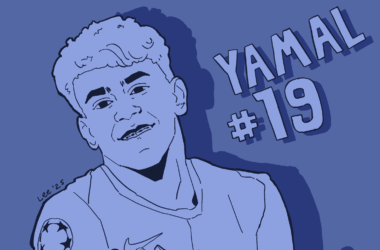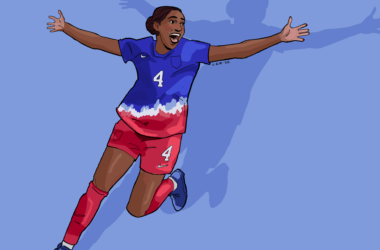On Oct. 13, The Portuguese Football Federation (FPF) announced that Cristiano Ronaldo had tested positive for COVID-19. Before the test results were released, Ronaldo had been with the Portuguese national team playing in the UEFA Nations League. He has since returned to his home in Turin, Italy, where he is self-isolating.
“Ronaldo was released from the work of the National Team after a positive test for COVID-19, so he will not face Sweden,” the FPF said in a statement. “The Portuguese international is doing well, without symptoms, and in isolation.”
Although Ronaldo’s diagnosis attracted significant media attention, it is just one event in a series of adverse COVID-19 consequences for professional soccer in Europe. Due to the pandemic, soccer leagues across Europe have had to readjust how the game is played. In addition to having no spectators, these adjustments include rescheduling league matches and mandatory COVID-19 testing for players and staff.
The onset of the second wave of COVID-19 in Europe means that soccer leagues must take place in empty stadiums. The United Kingdom government’s directive of spectator-free stadiums has been in place since May to prevent the spread of the virus. Soccer games without spectators have significantly impacted players’ motivation. Dimitar Berbatov, a retired Manchester United striker, believes that playing in empty stadiums affects player performance.
“[Playing behind closed doors] can affect your performance when you go out there, and there are no fans,” Berbatov said in an interview with Betfair. “[Even though] it’s a serious game, your body and mind can tell you it’s a practice game, which can lead to bad games and performances.”
According to a University of Reading study, matches ending in a home win fell from 43.8 per cent to 41.2 per cent after fans were no longer allowed to attend games. Joshua Kimmich, a defender and midfielder for Bayern Munich, noted these differences.
”[When the stadium is full], you [feel] more [excited] when you score a goal,” Kimmich said in an interview with Psychology Today. “It’s more emotional when there are fans.”
The pandemic has also revealed the vulnerabilities of clubs in the lower leagues. Many clubs are struggling to survive, as their primary source of revenue comes from spectators. The Premier League acknowledged clubs’ financial fragility in the lower leagues and has devised an action plan to support those in need.
“League One and League Two clubs rely more heavily on matchday revenue and have fewer resources at their disposal than Championship or Premier League clubs, and are therefore more at risk, especially at a time when fans are excluded from attending matches,” said the Premier League in a statement. “This offer [of financial assistance] will consist of grants and interest-free loans totalling a further $50 million pounds on top of the $27.2 million pounds in solidarity payments already advanced to League One and League Two this year.”
The mental health of athletes, whether in soccer or any other sport, must also be considered during this unusual season. Managers and clubs need to start paying attention to mental health as leagues across Europe persevere through the ongoing pandemic. Many players are away from their home and playing in foreign countries. Pundits and critics, who remain overly critical of players’ performances, do not always consider that these players are working in an unprecedented situation. The pressure to win should not be an excuse to neglect the mental wellbeing of players.
“Your athletes are more resilient when they know how to manage their emotions,” Dr. John Sullivan, a clinical sports psychologist, noted in an interview with CBS Boston.
As in every other field, officials of the top soccer leagues in Europe need to understand the changes in the game at a deeper level. The impact of this pandemic goes beyond just headline-grabbing diagnoses of major stars like Ronaldo. The effect of spectator-free stadiums on players, the financial viability of clubs in lower leagues, and players’ mental health are key areas for management to work on as the restrictions with the pandemic continue for the foreseeable future.








